Americans less likely to distance Muslim extremists from religion than Christians
The survey suggests America is significantly more worried by Islam than any other religion
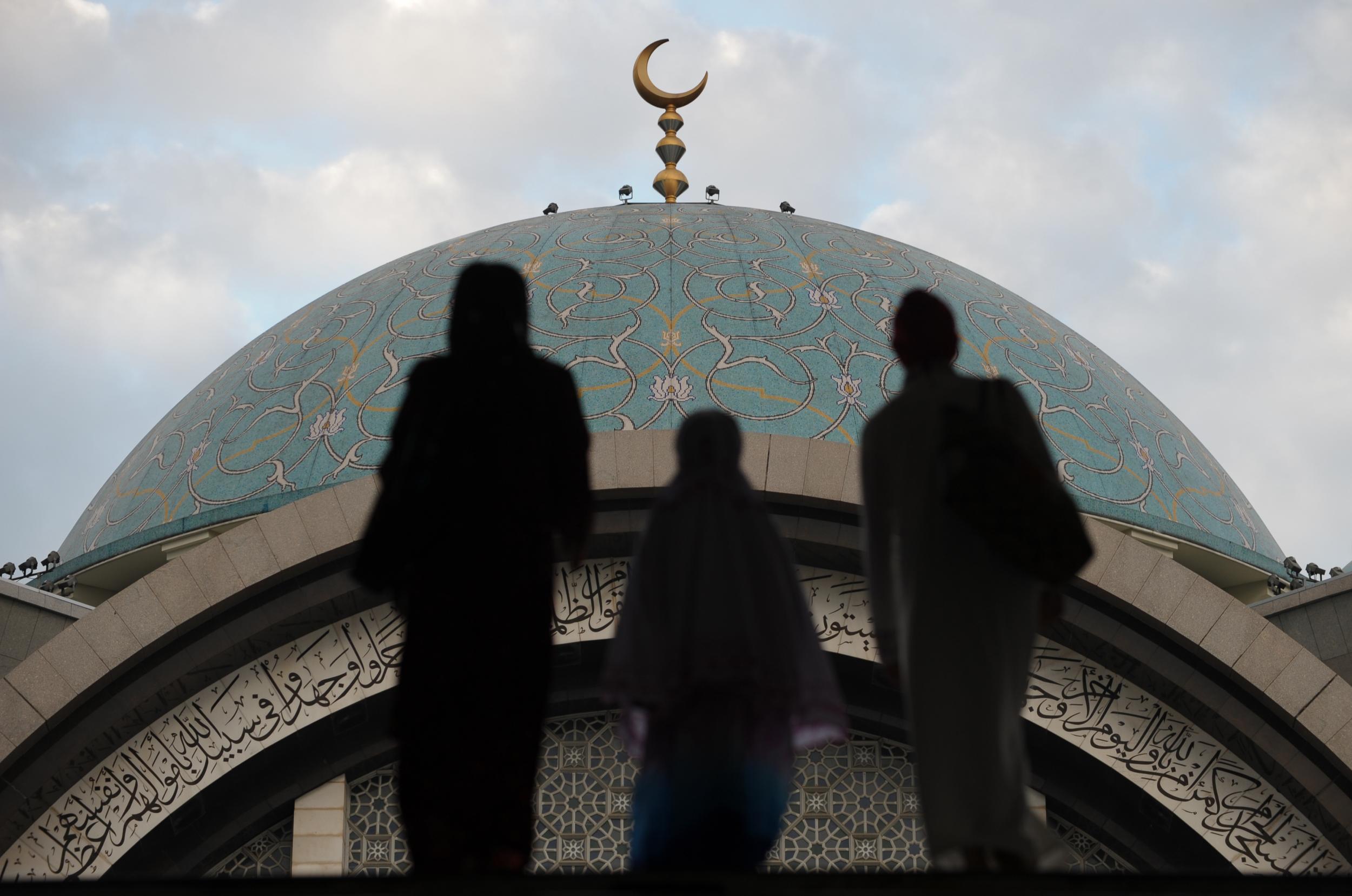
Your support helps us to tell the story
From reproductive rights to climate change to Big Tech, The Independent is on the ground when the story is developing. Whether it's investigating the financials of Elon Musk's pro-Trump PAC or producing our latest documentary, 'The A Word', which shines a light on the American women fighting for reproductive rights, we know how important it is to parse out the facts from the messaging.
At such a critical moment in US history, we need reporters on the ground. Your donation allows us to keep sending journalists to speak to both sides of the story.
The Independent is trusted by Americans across the entire political spectrum. And unlike many other quality news outlets, we choose not to lock Americans out of our reporting and analysis with paywalls. We believe quality journalism should be available to everyone, paid for by those who can afford it.
Your support makes all the difference.Isis's effort to terrorize the United States appears to be working.
A new survey from the Public Religion Research Institute shows a sharp increase in the number of Americans who are actively worried about terrorism. In November 2014, a third of Americans said they were "very" or "somewhat" worried about themselves or a family member being a victim of a terrorist attack. This year, after attacks in Paris and San Bernardino, Calif., nearly half of Americans say they share that concern.
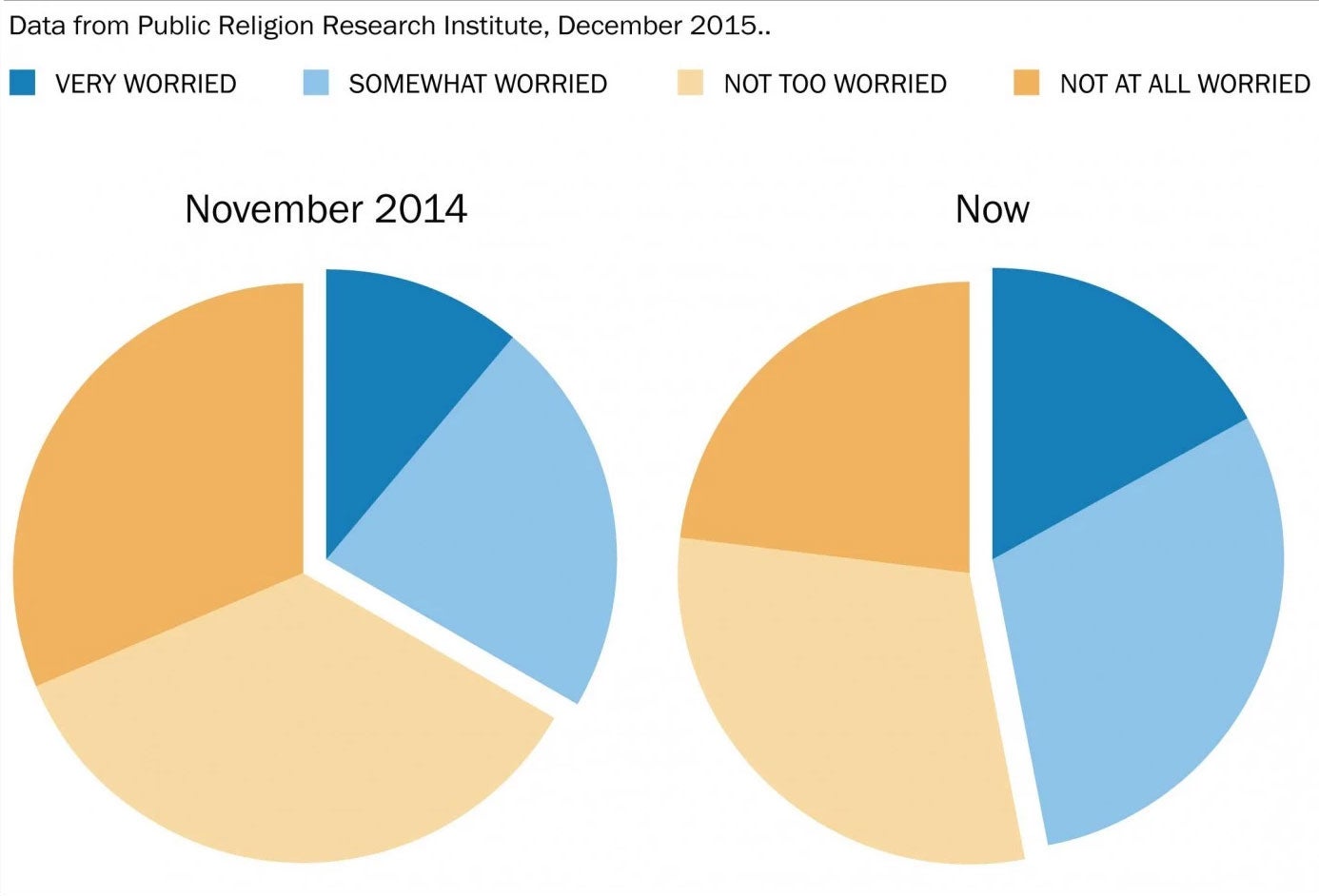
Terrorism is also the issue Americans consider critical — far more than illegal immigration and slightly more than mass shootings.
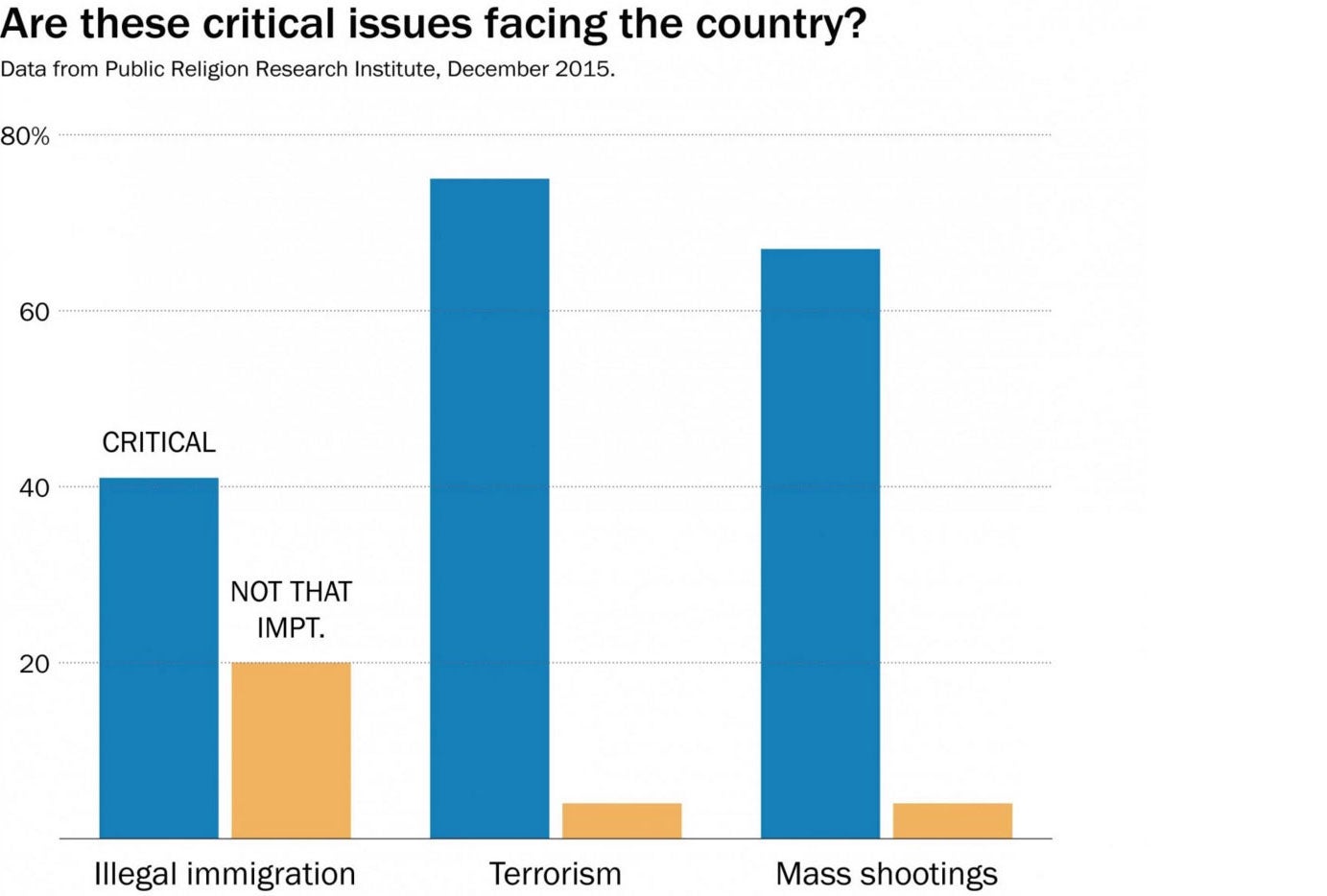
Note that attitudes about illegal immigration haven't really changed much over the past year. About the same number of people support a path to citizenship as have since February, and about the same number of people support deporting those here illegally.
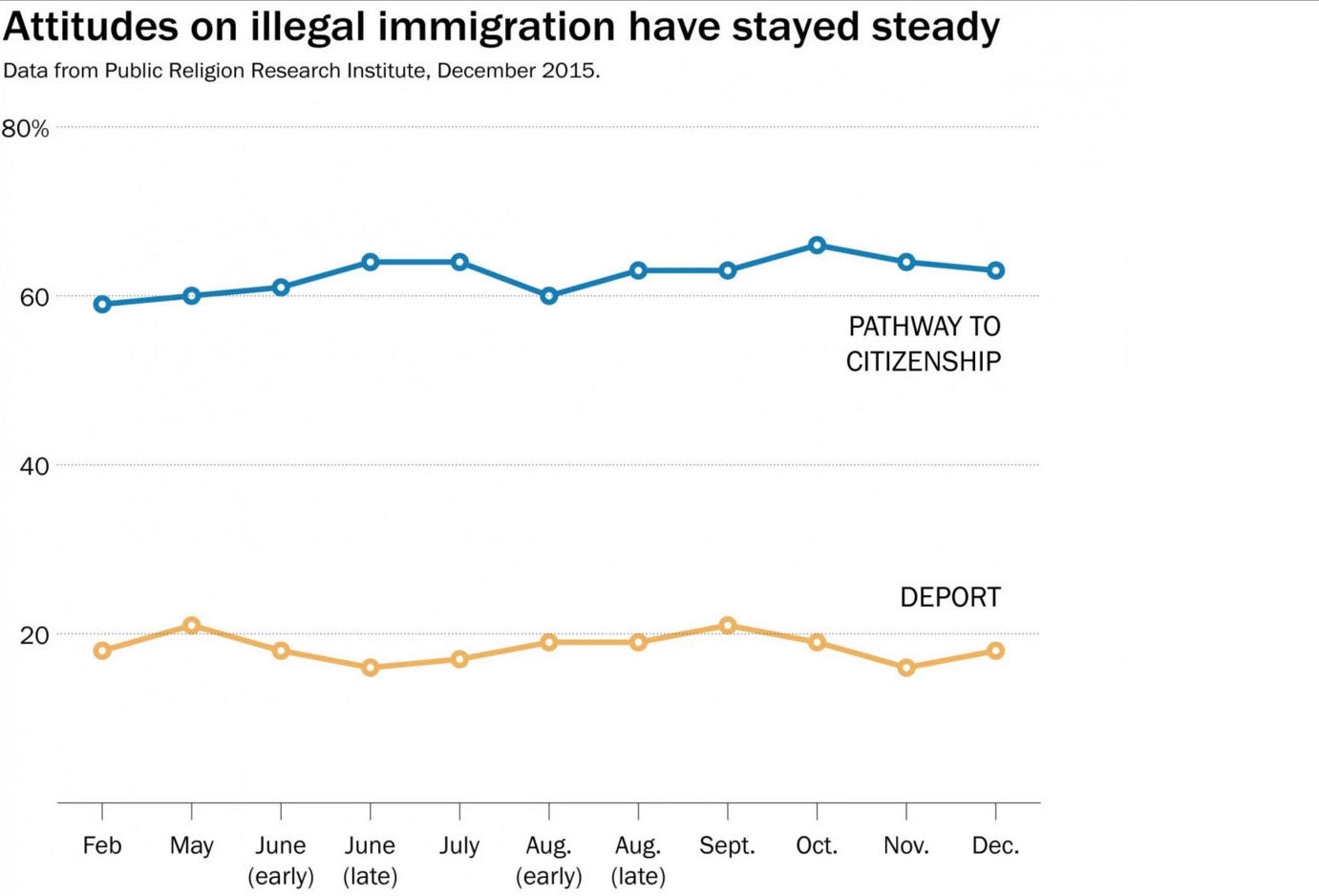
On the other two topics — terrorism and mass shootings — there's a predictable partisan split. Republicans are more worried about the former, and Democrats the latter.
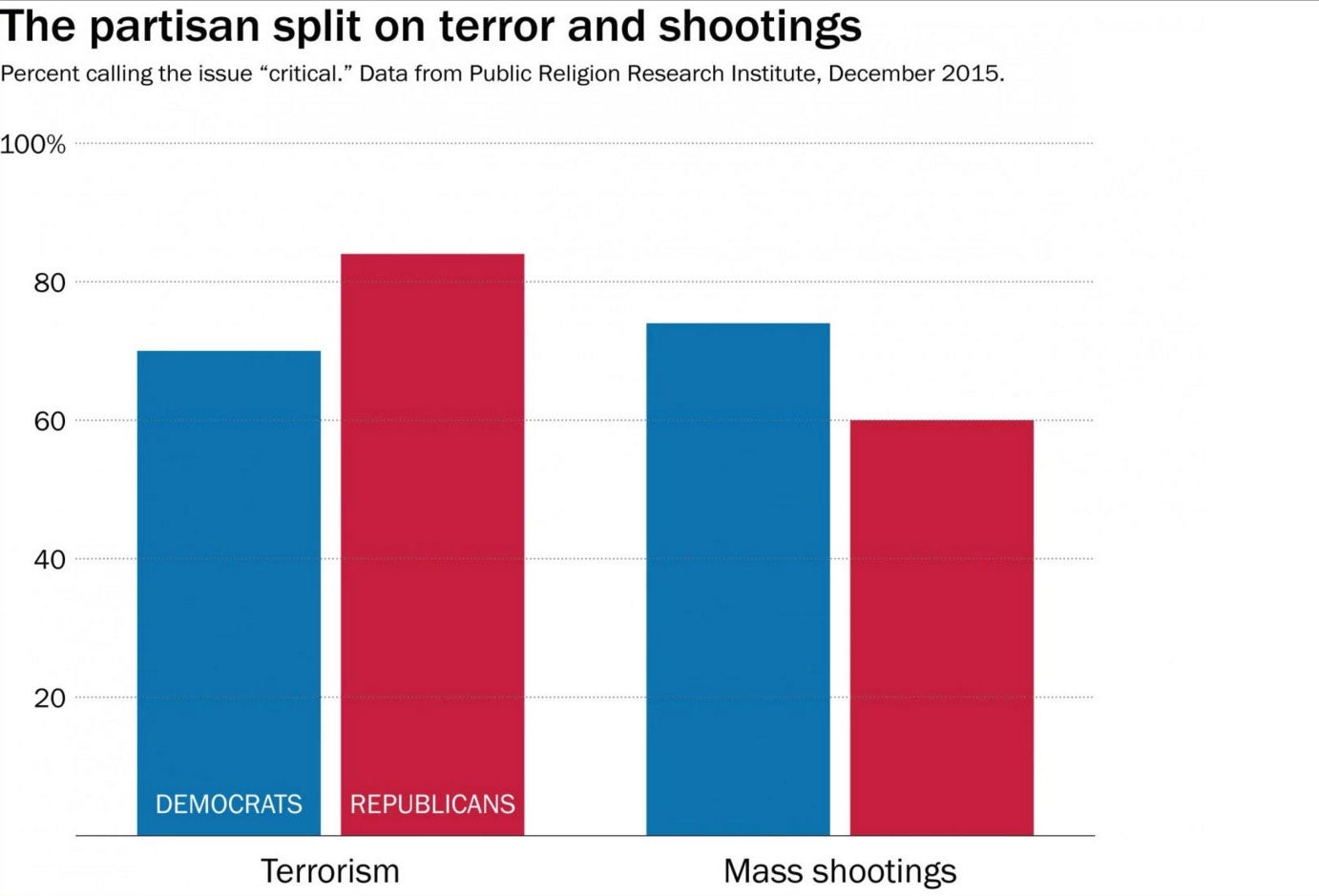
(I asked the folks at PRRI if they'd considered asking about the extent to which Americans were afraid of being the victims of a mass shooting. "We toyed around with that idea, but ultimately decided against including it," PRRI's Dan Cox said via email. "We thought that because the ideas are not mutually exclusive — a terrorist attack could certainly take the form of a mass shooting. The usefulness of the question would be limited.")
Perhaps the most striking questions, though, were a pair in which the pollsters asked whether people were willing to distance terrorists from the religions in whose name they claimed to be acting. (The questions were: "When people claim to be Muslim/Christian and commit acts of violence in the name of Islam/Christianity, do you believe they really are Muslim/Christian, or not?")
Americans were nearly twice as willing to assume that those saying they were committing violent acts in the name of Christianity weren't real Christians than they were to make the same distinction for Muslims. (Many terrorist acts, of course, are a subset of this category.)
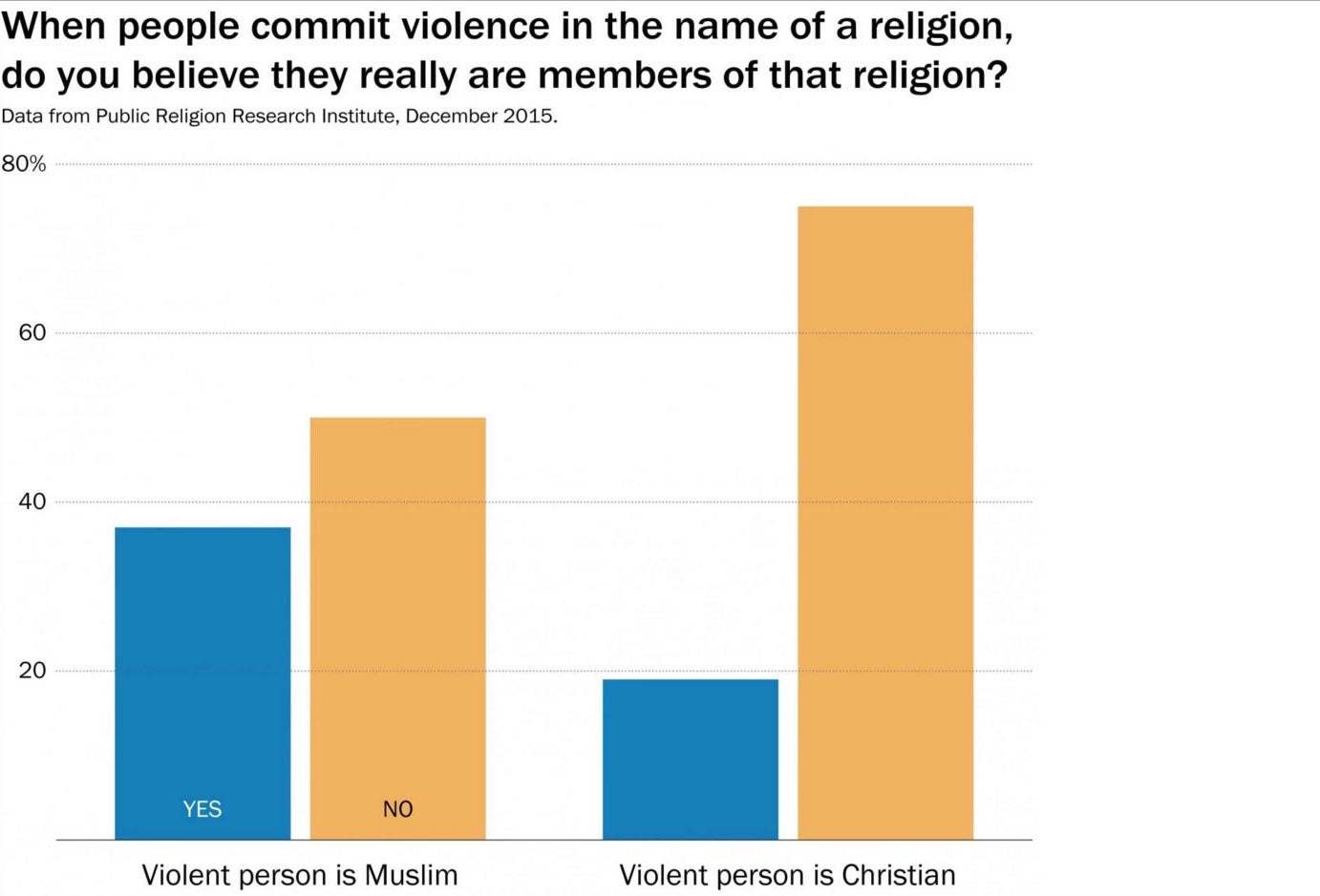
Part of that is probably a result of familiarity; more Americans understand the basics of Christianity than Islam and may be likely to assume that Islam provides more allowance for violent acts (47 percent of respondents considered the values of Islam "at odds with American values").
Regardless, this also shows Isis is being successful. Its goal of driving a wedge between the West and the Muslim world relies on precisely these sorts of distinctions.
Copyright: Washington Post
Subscribe to Independent Premium to bookmark this article
Want to bookmark your favourite articles and stories to read or reference later? Start your Independent Premium subscription today.
Join our commenting forum
Join thought-provoking conversations, follow other Independent readers and see their replies
Comments